AFTERWORD
By Dr. A. T. Ariyaratne (The Little “Gandhi” of Sri Lanka)
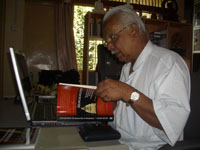
In this easy-to-read and thoughtful volume, Dr. Patrick Mendis has identified issues that both bind us together and separate us from our fellow living beings. He presents a unique analysis, having emerged from the journey he took as an adopted child in rural Sri Lanka to the United States and around the world.
Whether listening to the extended speechifying of Fidel Castro or observing the misery of Brazilian favelas, Dr. Mendis observes that the desire for freedom and democracy permeates the motivations of all people. Rich or poor, high or low tech, the myriad societies of the earth yearn for opportunities to express their highest aspirations. They wish to share part of themselves.
It is that same motivation and action—awakening and sharing oneself for the benefit of others—that has energized great movements of human history. Our own Sarvodaya Shramadana Movement in Sri Lanka reflects such values, views, and virtues, as does every great religious tradition.
Our spiritual inner-beings shape the actions we take as community leaders, advocates, citizens . . . and often as victims of forces that seem to be beyond our control as Dr. Mendis explains in “Asian Holocaust” in Cambodia.
Yet generation after generation, we triumph over adversity. For nearly five decades of integrated development “from the bottom up,” Sarvodaya and like-minded approaches have shed light with a far more optimistic worldview. Although one cannot help but recognize suffering, one can also act in concert with neighbors and fellow world citizens. Indeed, that sort of engagement in the life of our local community and worldwide family may well be our salvation.
Influenced by Sarvodaya as a child, Dr. Mendis reflects that positive direction and worldview. His stories of shipboard voyages from country to country resound with the message that many know by different names. Eye opening travel, learning, and cultural experiences most certainly reflect the core of Sarvodaya thought and action as well.
The individual touches, sees, smells, hears, and feels the nature of things differently in each context. The mind interprets with new sets of criteria and our appreciation of realities changes. That is the process by which the child becomes an adult, the immature nation becomes wise, and the struggling economy becomes open to equitable growth. As individuals, communities, nations, and interdependent beings, we awaken each other.
The partisan politics, which seem to overshadow such fundamental values, rarely have the enduring loyalty that is earned through freedom, democracy, and full participation by those who are most affected. Dr. Mendis’ own actions reflect this message.
By donating a large portion of proceeds from the sales of this book and the previous edition to a Sarvodaya leadership and scholarship program and other tsunami projects in partnership with his Tsunami Leaders Caring ‘TLC’ Foundation, he illustrates the very awakening to which these pages bear witness.

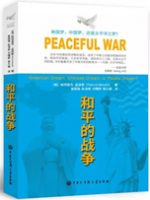
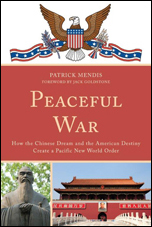 Peaceful War
Peaceful War
 Commercial Providence
Commercial Providence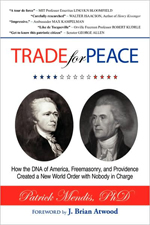 Trade for Peace
Trade for Peace
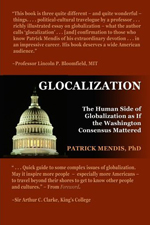 Glocalization
Glocalization